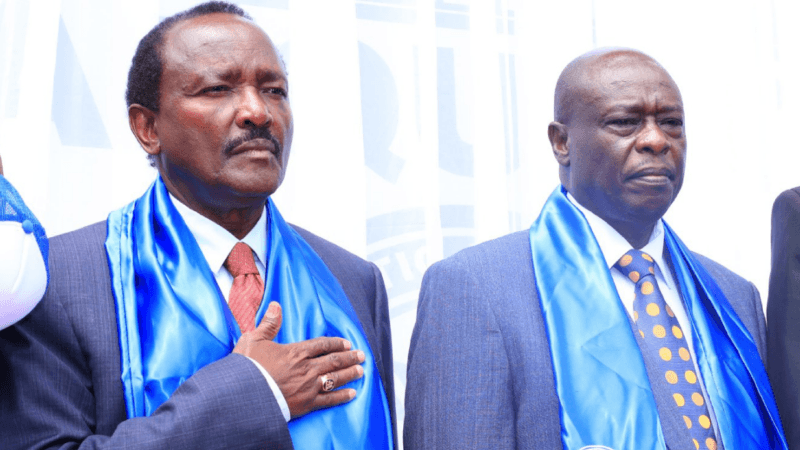We're loading the full news article for you. This includes the article content, images, author information, and related articles.
A new political alliance is seeking fundamental changes to Kenya's electoral laws through court action and the implementation of bipartisan report recommendations, aiming to decentralize presidential tallying and restructure the electoral commission ahead of the 2027 general election.

A high-stakes constitutional petition has been filed at the High Court in Nairobi by a coalition of opposition leaders, including former Deputy President Rigathi Gachagua and Wiper Party Leader Kalonzo Musyoka. The petition aims to fundamentally alter the process of tallying, transmitting, and declaring presidential election results. The central demand is to make the results announced at the constituency level final and not subject to alteration or “verification” at a national tallying centre. This move directly challenges the centralized authority of the Independent Electoral and Boundaries Commission (IEBC) chairperson, which has been a point of contention in previous election cycles.
According to the court filings, the petitioners are seeking several key orders. These include compelling the IEBC to gazette all polling stations at least six months prior to the election date and enforcing mandatory ballot reconciliation at each polling station before results are announced. The coalition argues that the current practice of centralizing the final verification and declaration of presidential results in Nairobi is unconstitutional and should be declared null and void. This legal challenge represents a significant step by the newly formed political alliance to reshape the electoral landscape before the 2027 contest.
This court action runs parallel to a wider push for electoral reforms stemming from the National Dialogue Committee (NADCO) report, which was submitted in late 2023. Co-chaired by Kalonzo Musyoka and National Assembly Majority Leader Kimani Ichung'wah, the bipartisan committee was formed to address national crises following the contentious 2022 elections and subsequent opposition protests. The report contains a raft of recommendations that, if implemented, would significantly impact Kenya's governance structure.
Key among the NADCO proposals is the comprehensive restructuring and reconstitution of the IEBC. This includes expanding the selection panel for commissioners from seven to nine members to broaden stakeholder involvement and enhance public trust. The push for a new-look IEBC has been a consistent theme for opposition figures, with Kalonzo Musyoka recently urging for the process to be expedited, noting the country is less than three years from the next election with a non-functional commission.
Beyond the IEBC, the NADCO report advocates for significant constitutional amendments. These include the creation of an Office of the Prime Minister, to be nominated by the President and approved by the National Assembly, and the establishment of a formal Office of the Leader of the Official Opposition. The latter would be occupied by the leader of the party or coalition that secured the second-highest number of votes in the presidential election. These proposals are seen by proponents as a way to enhance inclusivity and reduce the winner-take-all nature of Kenyan politics, a frequent trigger for post-election conflict.
Further recommendations from the NADCO process include:
The implementation of the NADCO report has, however, faced political and legal headwinds. In April 2024, the High Court in Kiambu suspended its implementation following a petition, a move that sparked accusations of sabotage from the opposition. Despite the National Assembly adopting the report in February 2024, sharp divisions remain between the Kenya Kwanza government and the Azimio opposition on the legislative path forward. The alliance between Gachagua, who has since formed the Democracy for Citizens Party (DCP), and Musyoka is positioning itself as a formidable force, aiming to consolidate their respective political bases in the Mt. Kenya and Ukambani regions ahead of 2027. Their joint push on electoral reforms signals a unified strategy to challenge the current administration and fundamentally reshape the rules of engagement for future elections.
Keep the conversation in one place—threads here stay linked to the story and in the forums.
Sign in to start a discussion
Start a conversation about this story and keep it linked here.
Other hot threads
E-sports and Gaming Community in Kenya
Active 9 months ago
The Role of Technology in Modern Agriculture (AgriTech)
Active 9 months ago
Popular Recreational Activities Across Counties
Active 9 months ago
Investing in Youth Sports Development Programs
Active 9 months ago
Key figures and persons of interest featured in this article